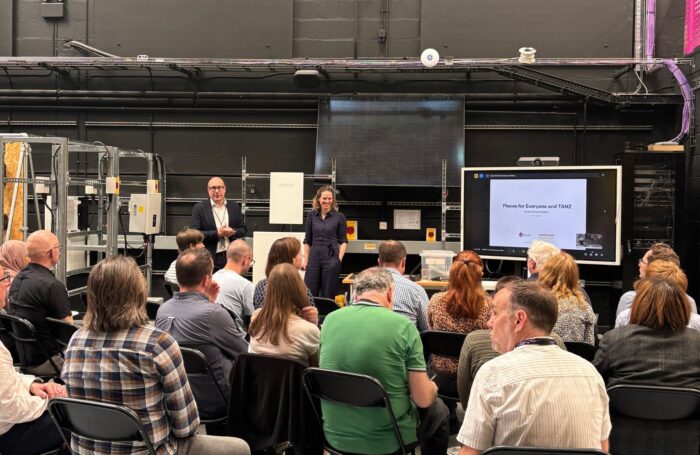Greater Manchester Combined Authority (GMCA) has joined forces with The University of Manchester to develop a carbon calculator for quantifying the carbon impact of building retrofit works, providing a better understanding of materials and solutions with the least carbon impact.
With nearly 1.25 million domestic properties and around 9,000 commercial and industrial buildings across Greater Manchester, reducing the amount of energy used in existing buildings will be key to achieving the city-region’s aim of being carbon-neutral by 2038. GMCA is already taking a leading role in the co-ordination and delivery of grant-funded decarbonisation schemes, aiming to deliver 20,987 energy efficiency measures to 5,481 socially rented homes by September 2025. Retrofit measures include loft insulation, external and internal wall insulation, smart ventilation, LED lighting, heat pumps, and solar PV, with benefits including improving health and wellbeing, living standards, and equality whilst reducing carbon emissions. However, minimisation of the embodied carbon impact of the retrofitting works is essential for fulfilling overall carbon neutrality of the buildings, so there is an active need for a better understanding of how different materials, suppliers, and methods lead to different carbon impacts.
Funded by a UKRI/EPSRC Impact Acceleration Grant via The University of Manchester, the new research project will see GMCA collaborate with Dr Mithila Achintha CEng FIStructE FIMMM, senior lecturer in Sustainable Infrastructure Materials at The University of Manchester. The project will ensure the embedding of knowledge and the latest tools of carbon quantification within GMCA’s retrofit team and beyond, including educating external partners and creating an essential new capability within GMCA itself. As a part of this new project, which runs from June 2024 to March 2025, Dr Achintha, who is a nationally recognised leader in infrastructure carbon and sustainable construction research, will be seconded to GMCA for two days per week, where he will impart his knowledge and expertise of infrastructure carbon quantification and management via the collaboration with GMCA’s retrofit team.
Anees Mank, Programme and Policy Lead (Retrofit) at GMCA, said: “The development of a carbon calculator with Dr Achintha and The University of Manchester will enable independent and consistent evaluation of the embodied carbon impact of different makes and models of retrofit equipment and materials, allowing us to better understand and select the solutions with the least carbon impact. Longer term, this will help to reduce the amount of embodied carbon involved in retrofitting by a significant proportion.”

Commenting on his collaboration with GMCA, Dr Mithila Achintha said: “I am delighted to be collaborating with GMCA to develop a carbon calculator and embed the right knowledge and tools for embodied carbon quantification, all of which will support building decarbonisation across the city-region. Whilst the retrofitting of buildings for enhanced energy efficiency is expected to yield significant progress towards carbon neutrality, minimisation of the embodied carbon of the retrofitting works is essential towards achieving Greater Manchester’s carbon neutrality target. I expect the follow-on translational research involving wider stakeholders will be focused on policy to involve embodied carbon in decisions, practice, and procurement. I would like to thank UKRI/EPSRC, GMCA and The University of Manchester for funding this research project.”



